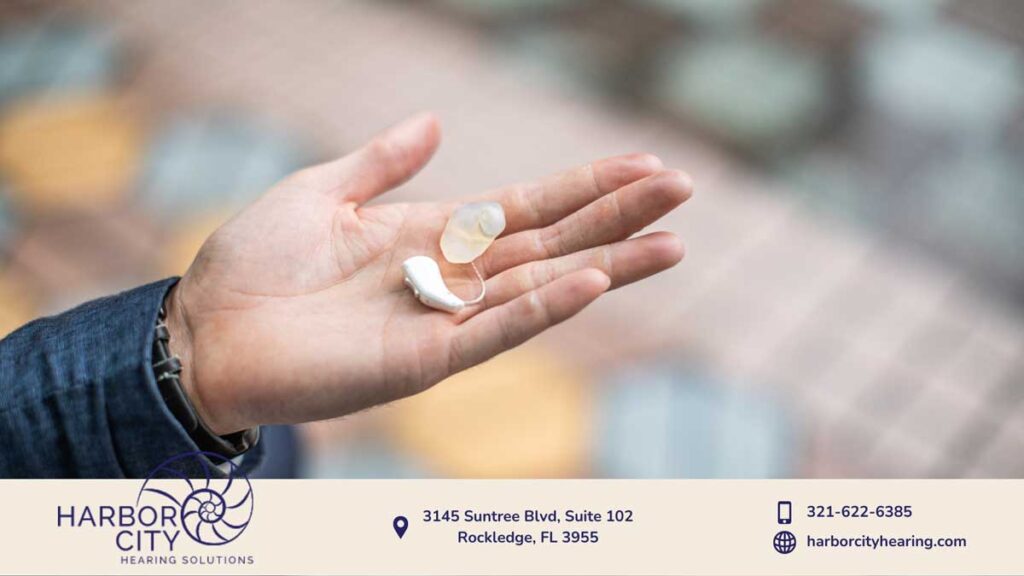Over the counter hearing aids are a different class of hearing aid that is available to consumers without the need to visit an audiologist or a hearing healthcare expert. These devices are designed to assist adults who have mild to moderate hearing loss.
The FDA’s most recent ruling pertaining to over-the-counter hearing aids applies to adults aged 18 and over who have “perceived” mild to moderate hearing loss. Meanwhile, hearing aids for children or those with profound to severe hearing loss will continue to be prescribed devices.
Over the counter Hearing Aids Latest FDA Ruling
After receiving and reviewing over a thousand public comments on the proposed rule issued on October 20, 2021, the FDA finalized the rule. The final rule summarizes comments presented by professional associations, consumers, hearing aid manufacturers, members of congress, public health organizations and advocacy groups, state agencies, and other stakeholders, as well as the FDA’s responses.
The final ruling incorporates numerous changes from the proposed rule in response to public demands and to ensure the effectiveness and safety of OTC hearing aids. This includes lowering the maximum output to lower the risk of hearing loss caused by over-amplification. All OTC hearing aids are equipped with a user-adjustable volume control, and are required to have proper device labeling.
Who Is a Suitable Candidate for Over the Counter Hearing Aids?
As mentioned above, OTC hearing aids are only approved for adults 18 and older with mild to moderate hearing loss.
Ideally, individuals should get a hearing test from an audiologist to determine their level of hearing loss and whether they are candidates for this type of hearing aid. However, since anyone can get over-the-counter hearing aids without a hearing test, it’s quite ironic how someone can assess his or her level of hearing loss.
Over the counter hearing aids require the user to be able to follow instructions in order to fit the device to their ear and tune the sound. An automated hearing test requiring responses to sounds may be available; however, this is not always the case. The process could also include using an app-based program or volume control to change the bass and treble to find a sound combination that appears to be beneficial.
As you can see, there’s really a big difference between getting over-the-counter hearing aids versus getting a traditional prescription device from an audiologist.
Over the Counter Hearing Aids and PSAPs
Personal sound amplification products, otherwise known as PSAPs, are amplifying devices that can be bought without any prescription or getting checked by an audiologist. PSAPs are ideal for individuals who do not have hearing loss. Some people may confuse OTC hearing aids with PSAPs.
Knowing the difference between the two will help you make a better-informed decision.
Can PSAPs help you hear better?
PSAPs are not permitted to be marketed as hearing aids by the Food and Drug Administration. The National Academy of Sciences and the President’s Council of Advisors on Science and Technology, on the other hand, have recently stated that PSAPs can benefit some people with mild to moderate hearing loss.
Before you decide to purchase or use a PSAP to address loss, we highly suggest that you get a hearing test and get professional advice from an audiologist.
What are the advantages of having over-the-counter hearing aids?
According to studies, most people wait for an average of 7-10 years after first experiencing symptoms before deciding to seek professional hearing aid assistance. Untreated hearing loss has also been linked to an increased risk of social isolation, depression, and accidents. Additionally, the onset of cognitive decline is also at higher risk. One of the primary goals of OTC hearing aids is to widen access to lower-cost hearing aids.
OTC hearing aids may be a feasible step towards getting people more affordable hearing help sooner. However, for individuals who need a more customized solution, have more complicated medical needs, or have a more serious level of hearing loss, a consultation with an audiologist is highly recommended to develop a more comprehensive care plan.
Over the Counter Hearing Aids: From an Audiologist’s POV
OTC hearing aids are a cheaper alternative to prescription hearing aids, which are only available from hearing health professionals, like audiologists, hearing aid specialists, hearing aid dispensers, and otolaryngologists (ear, nose, and throat doctors). Customarily, an audiologist or hearing health professional fits you for a hearing aid, adjusts it based on your hearing loss, and provides additional services such as follow-up care, adjustments, servicing, and maintenance.
You fit over the counter hearing aids yourself, and you may be able to control and adjust the devices in ways that prescription hearing aid users cannot. Some over-the-counter hearing aids may not resemble prescription hearing aids at all.
Consult a hearing health professional if you have difficulty hearing conversations (even in quiet settings) or if you encounter any difficulty hearing loud sounds. These are indications that you may have a more serious degree of hearing loss and that over-the-counter hearing aids may not be effective for you. An audiologist or hearing healthcare professional can help you determine whether you need a prescription hearing or another device to improve your hearing.
Get a Hearing Test
Although it is not required, we highly advise obtaining a hearing test before purchasing OTC hearing aids. The main advantage of doing so is determining whether an over the counter hearing aid device can help you with your hearing loss. Keep in mind that hearing loss is not all the same.
Audiologists can also provide support on how to use over the counter hearing aids during an office visit.
Hearing Tests in Melbourne, FL
Harbor City Hearing Solutions provides comprehensive hearing tests in Melbourne, FL, and nearby locations.
Contact us today to schedule an appointment!



